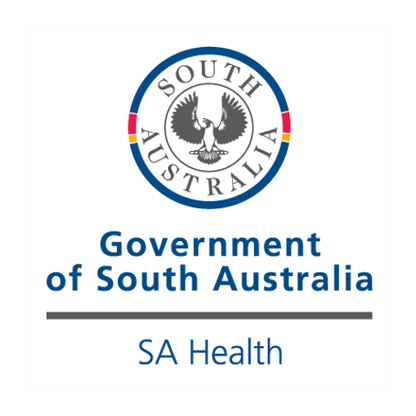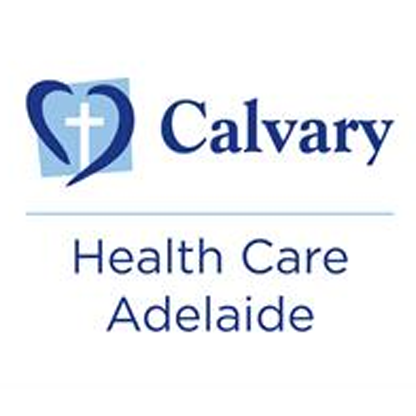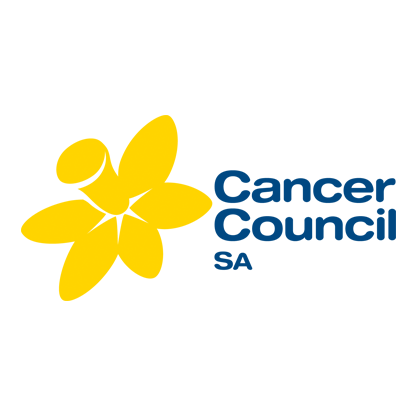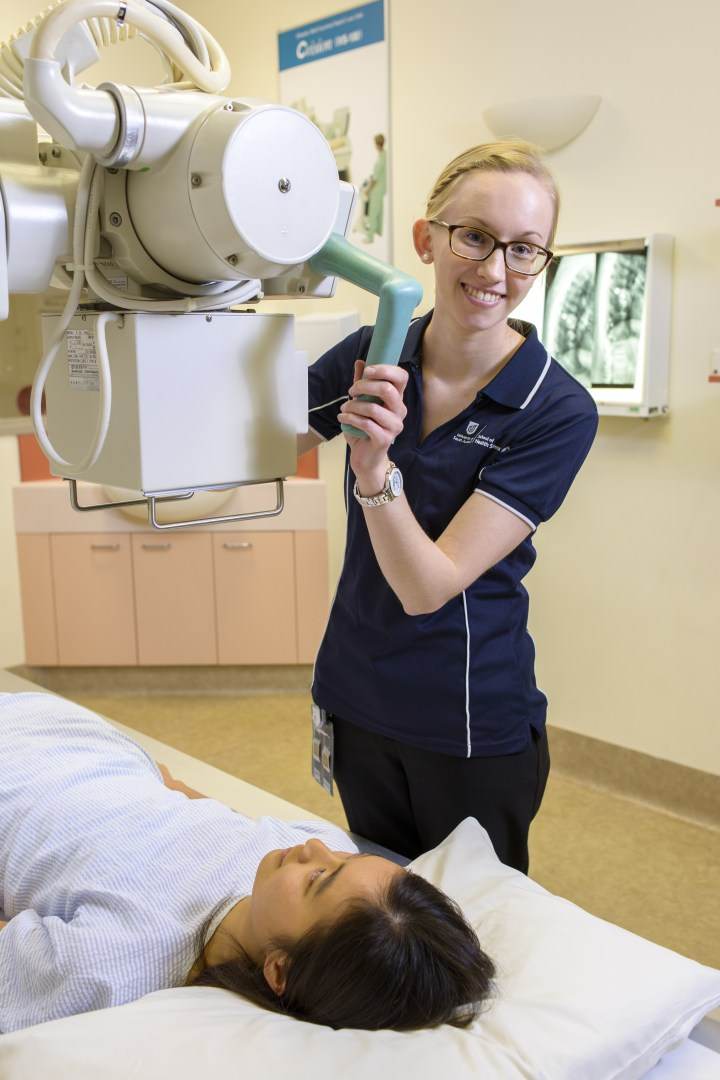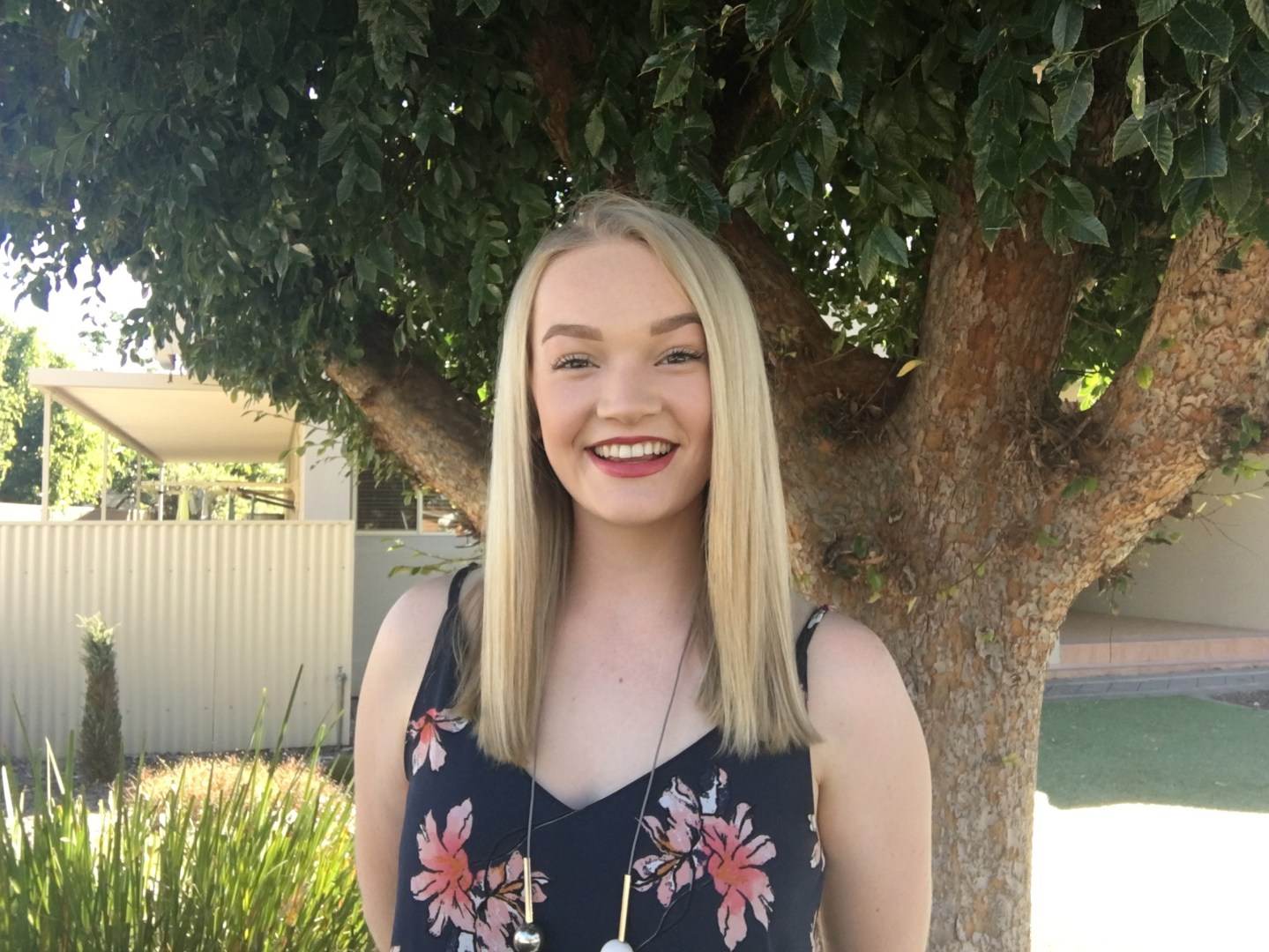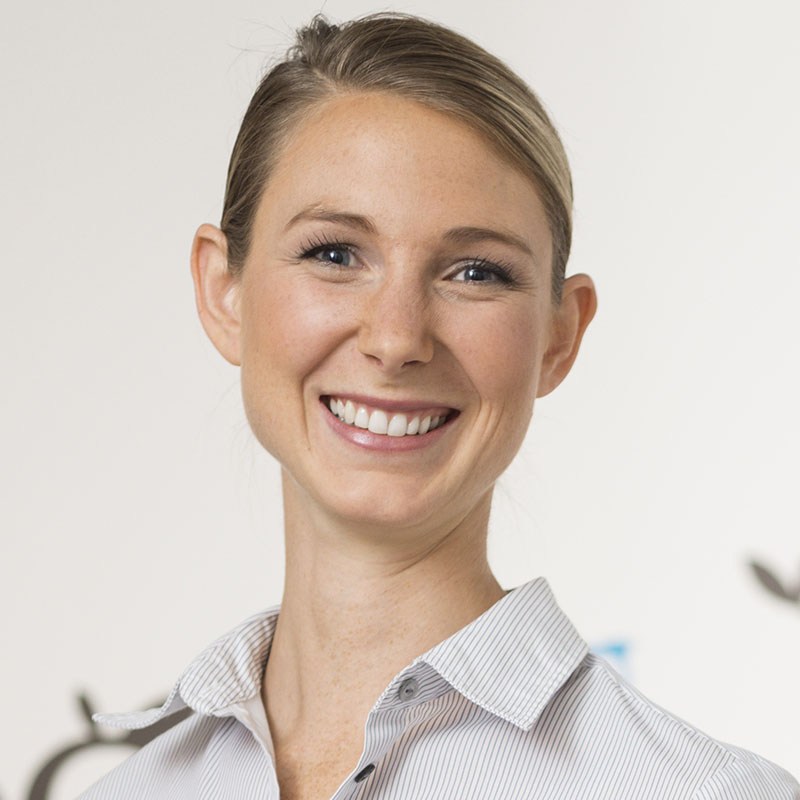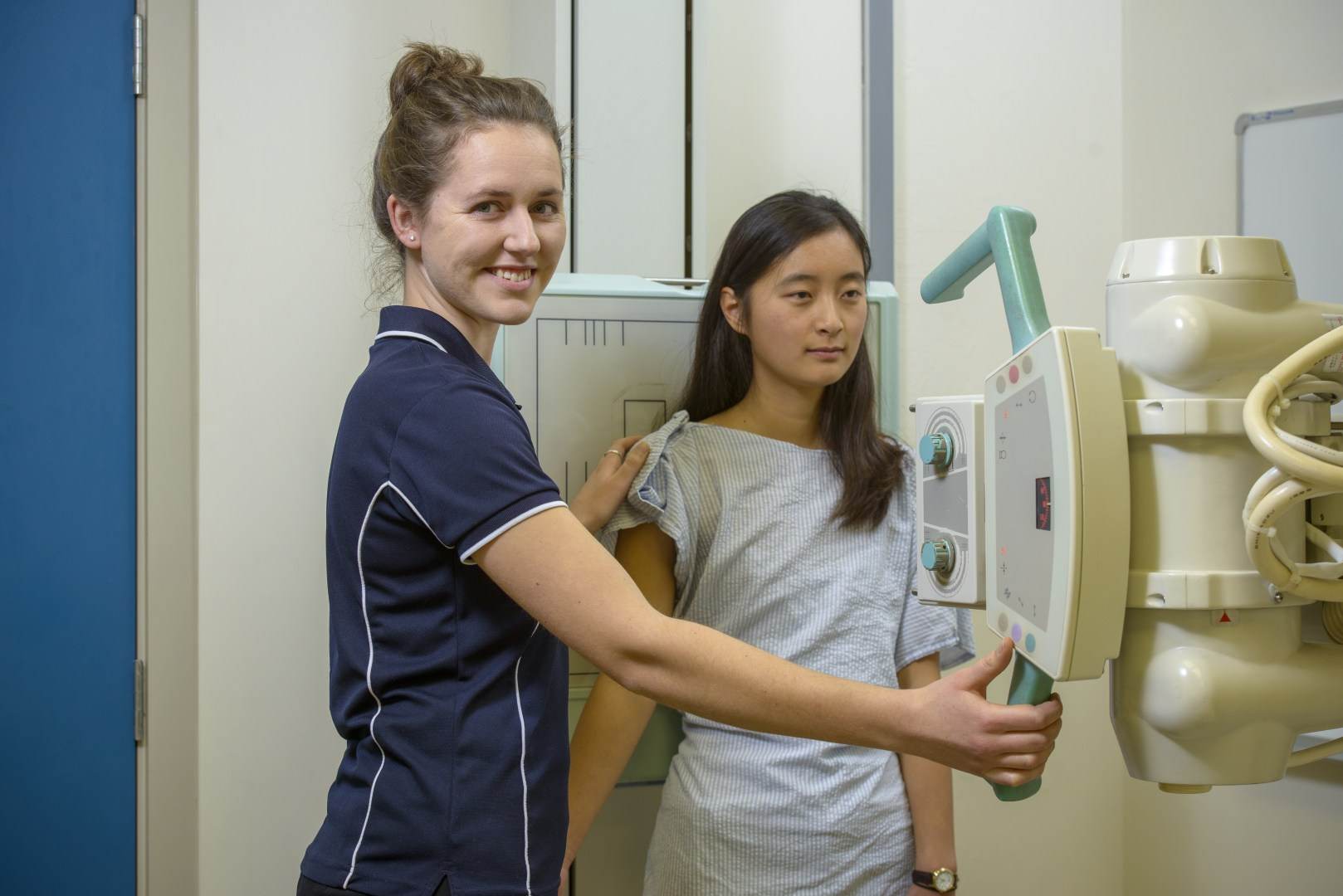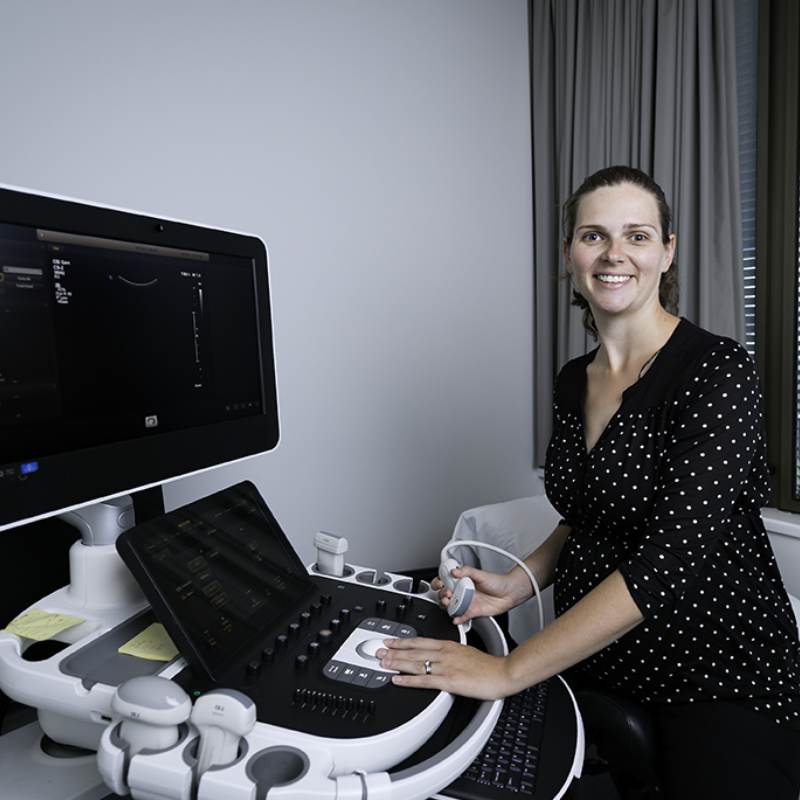You're viewing degree information for International students
You're considered an International student if you are:
- NOT an Australian or New Zealand citizen
- NOT an Australian Permanent Resident (including Humanitarian Visa holders)
Discipline info for International students
Interested in Medical Radiation Science?
Become an accredited medical radiation practitioner with South Australia’s No.1 university for graduate careers in health.1
With expert knowledge in science, technology and medicine, medical radiation professionals perform complex diagnostic imaging on patients to diagnose, treat and improve health outcomes.
UniSA offers South Australia’s only degrees in medical radiation, with three fully accredited specialisations in the fields of medical imaging, nuclear medicine and radiation therapy. In each specialisation, you will develop the skills to safely and effectively deliver life-changing outcomes for patients and their families.
Graduate career ready by participating with over 1,400 hours of practical industry experience throughout your studies. Engage with practical learning on-campus in our 3D virtual treatment room and state-of-the-art x-ray suite. Your in-depth theoretical learning is taught by our award-winning teachers at a university with above world-class research in medical radiation science.2
Advance your career with further postgraduate study in specialty areas, including our Graduate Certificate in Breast Imaging – the only accredited certificate of its kind in Australia and New Zealand - or our fully accredited suite of sonography qualifications. You may also contribute to the field of research with a Master or PhD qualification.
1ComparED (QILT) Graduate Outcomes Survey 2020-22, Health Services and Support – Overall Employment Indicator (Domestic Undergraduate). SA public universities. 2Results in Clinical Sciences – 2018 Excellence in Research for Australia (ERA).
Key features
- Study South Australia’s only accredited medical radiation degrees from a university with more than 50 years of experience in allied health education and research.
- Develop the skills to become an accredited medical radiation professional, and safely and effectively work in the field of medical radiation.
- Graduate career ready by participating in over 1,400 hours of real-world clinical placements while you study.
- Practice your analysis skills with specialised equipment and computer systems in our purpose-built, on-campus virtual radiation therapy, x-ray and nuclear medicine computer simulation suites.
- High achieving students may be considered for honours in the third year of their bachelor’s degree and explore a specialised project.
- Learn from experienced academics with clinical experience, and from a curriculum informed by our above world-class research in medical radiation science.1
- Join South Australia’s no.1 university for graduate careers in health.2
- Pursue further postgraduate study options to specialise your scope of practice or advance your research capacity.
- UniSA is an unstoppable university for unstoppable people. As one of the World’s Top Young Universities,3 we’ll ensure you get the experience your future profession demands so it’ll feel like you’re studying one minute and in a career the next.
1Results in Clinical Sciences - 2018 Excellence in Research for Australia (ERA). 2ComparED (QILT) Graduate Outcomes Survey 2020-22, Health Services and Support – Overall Employment Indicator (Domestic Undergraduate). SA public universities. 3Ranked #52, 2023 THE Young University Rankings.
UniSA is an unstoppable university for unstoppable people. As one of the World’s Top Young Universities,1 we’ll ensure you get the experience your future profession demands so it’ll feel like you’re studying one minute and in a career the next.
Our enterprising spirit has made UniSA a renowned centre of innovation in the sectors driving Australia's future forward, including health. This is your chance to position yourself at the forefront of the highly in-demand medical imaging profession.
Our medical radiation science degrees offer extensive professional practice experience, with over 1,400 hours of practical industry experience included in your studies. In combination with our hands-on practical experience and strong theoretical knowledge, you’ll graduate career ready and confident to step into clinical settings from your very first day.
UniSA’s above world-class research in medical radiation science2 translates into our teaching, where you’ll learn from outstanding researchers, industry professionals and experienced clinicians. Clinical specialists will also come on-campus to teach you about current technologies and practices throughout your studies.
You’ll use the latest technologies and learn in modern teaching spaces, including our on-campus x-ray suite, and the Virtual Environment Radiation Therapy Training suite (VERT) which will let you practice your skills and build your confidence in a safe environment.
1Ranked #52, 2023 THE Young University Rankings. 3Results in Clinical Sciences - 2018 Excellence in Research for Australia (ERA).
UniSA offers the following Medical Radiation Science degrees
Choose your level of study
Short programs
Are you after a career change or looking to upgrade your existing skills? Or perhaps you just have an interest in a particular subject area and want to further your experience, skills and knowledge. We offer a suite of short programs that will allow you to build your knowledge and skill set.
Designed in collaboration with expert academics, program content is industry-relevant and up-to-date. Short programs include:
World-class partners for a world-class university
We are a globally connected university with over 2,500 industry and professional relationships that support student internships, research and community engagement.
Medical radiation professionals are in high demand across South Australia and interstate,1 with strong application into international industry. You may work in a variety of settings, including hospitals and private clinics, or can continue into research.
Upon graduating you’ll be eligible for registration with APHRA. Depending on your stream, you could be employed as a:
- Diagnostic radiographer: produce high quality medical images, using various technologies and types of radiation to monitor and help diagnose injuries and illnesses.
- Nuclear medicine technologist: prepare and administer radioactive substances to evaluate the function of an organ or body system to diagnose and treat disease.
- Radiation therapist: work alongside Radiation Oncologists and Medical Physicists to plan and deliver radiation treatment, primarily to cancer patients.
All streams of study can lead to roles such as:
- Interventional radiologist: use a medical imaging technique to visualise blood vessels.
- Magnetic resonance imaging (MRI) technologist: operate MRI scanners to create 3D images of a patient’s body tissues, which are used to diagnose illness and disease.
- Radiographer / radiology technologist: operate CT equipment to produce cross-sectional images of a patient’s bones, organs and tissues.
Through further postgraduate study, you may upskill into specialist areas including:
- Sonography: produce detailed pictures of the body in real time to diagnose and monitor a range of health conditions.
1Australian Government National Skills Commission Employment Projections 2021.
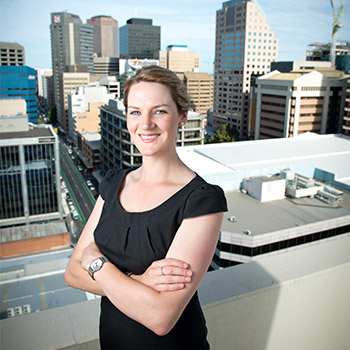
Global networks
As a globally connected university, our staff and students come from over 90 countries. We have more than 2,500 industry and professional relationships that support student internships, research and community engagement.
Our students have completed placements and internships with organisations like:
- Australian Radiology Clinics
- Benson Radiology
- Dr Jones and Partners
- Flinders Medical Centre
- Healthscan Specialist Imaging
- Radiology SA
- Women’s and Children’s Health Network
Industry facts
-
How to apply?
There are a number of ways to apply to study UniSA's undergraduate and postgraduate coursework degrees.
You can access our online International Application System through our How to Apply page. The International Application System is an easy and secure online application and acceptance process. You will have visibility of your application through the secure online portal with the ability to download offer documents, submit your acceptance and make a payment.
Alternatively you can submit an application through one of the University's registered Education Agents.
If you are completing an Australian year 12 qualification in Australia or overseas, or the International Baccalaureate (IB) Diploma Programme in Australia, you must apply through SATAC http://www.satac.edu.au/.
If you are applying for the UniSA Study Abroad or Study Abroad Plus program, you can submit your application online here.
Postgraduate study by research
For information on applying to do postgraduate study by research, including Masters by Research, PhDs or Doctorates, please visit http://unisa.edu.au/resdegrees. -
Is there a closing date for applications?
There is no closing date for submitting your application however the admissions process takes between one and three weeks from the date that we receive your application and all required supporting documentation.
If you are completing an Australian year 12 qualification in Australia or overseas, or the International Baccalaureate (IB) Diploma Programme in Australia, you must apply through SATAC. Key dates for applications can be found here.
-
What credit can I receive for previous studies? ?
You may be eligible to receive credit or advanced standing for your chosen UniSA degree based on your previous studies, if they are in a related area at an equivalent or higher level. Receiving credit will reduce the number of courses you undertake within the degree, and may also reduce the overall duration of your degree.
The amount of credit you may be eligible to receive is assessed on a case-by-case basis by the Admissions team.
The best way to determine your eligibility to receive credit or advanced standing is to apply using our International Application System which can be found on our How to Apply page. You will need to supply detailed syllabus documents with your application.
-
Can I speak to someone regarding my study options?
UniSA welcomes the opportunity to speak with you regarding your study options. Our staff are able to talk to you about degree information, career outcomes and pathways, entry requirements, applications, and student life, so that you are able to make the best study decision for your future.
Click here to book a 1:1 appointment with one of our enquiries team.
We also have many events throughout the year in Australia and overseas where you can speak with UniSA representatives about your area of interest. View our calendar of events in your home country by selecting the 'International' filter.
What others are saying
Why study at UniSA?
As one of the most innovative universities in Australia and Asia, there are many reasons to study with us. Here are just three:
Accessible, helpful and flexible
We have six campuses, a 24/7 online learning environment, and we offer flexible study options like online and evening courses.
Graduate success
UniSA is South Australia's number one university for graduate careers.*
*ComparED (QILT) Graduate Outcomes Survey 2019-21 – Full-time Employment Indicator (Undergraduate). SA public universities.
A five star university
Five stars for research, employability, teaching, facilities, internationalisation, inclusiveness and innovation*
*2022 QS Stars Ratings


